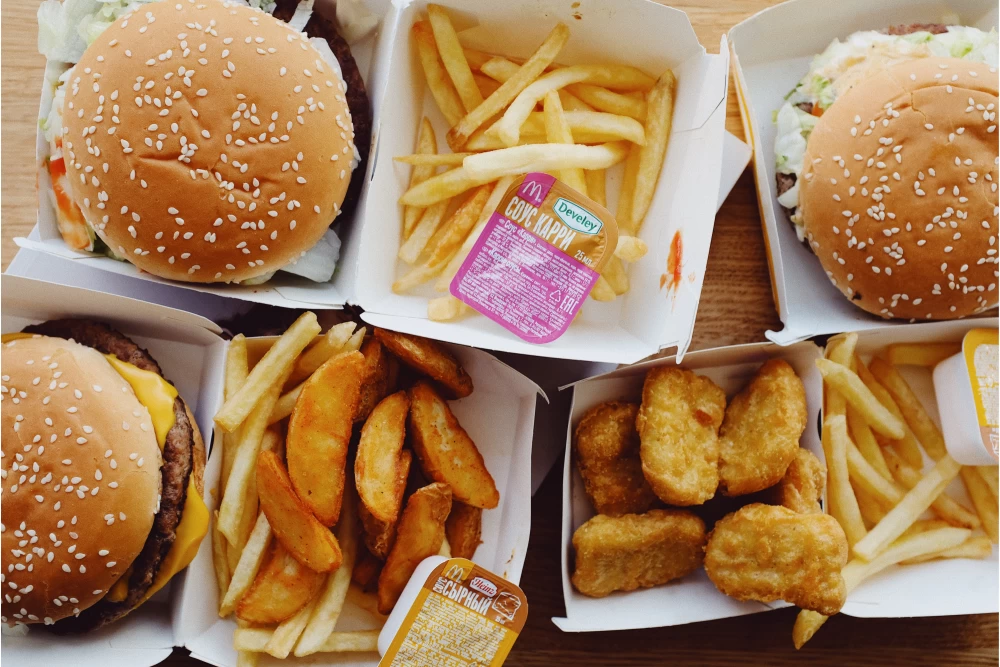
- 2nd May 2023
Table of Contents
Periods of Fasting Involved
Weight loss methods that involve periods of fasting interspersed with periods of eating have become increasingly popular in recent years. Some people may experience increased food cravings when engaging in intermittent fasting, despite the fact that it has been shown to have many benefits, including weight loss and improved metabolic health. During fasting, when the body is adjusting to a new eating pattern, these cravings may be particularly intense. Hunger hormones like ghrelin and leptin may have shifted, contributing to this increase in appetite. Leptin signals fullness and suppresses appetite, while ghrelin, also known as the "hunger hormone," stimulates it. Fasting can cause an increase in the hunger hormone ghrelin and a decrease in the fullness hormone leptin. Psychological factors like stress or boredom may also contribute to increased food cravings during intermittent fasting. It can be difficult to break the habit of eating at regular intervals or using food as a coping mechanism during fasting. While intermittent fasting has been linked to increased hunger at first, most people report that their cravings for food decrease as their bodies adjust to the new eating schedule. When breaking a fast, it's important to pay attention to your body and break the fast with healthy foods rather than giving in to unhealthy cravings.
Advantages: Enhanced Metabolism
The practise of intermittent fasting has gained popularity as a means of reducing body fat and boosting health. The increased metabolic rate is often cited as one of the many benefits of intermittent fasting. This is because insulin levels are better controlled through intermittent fasting. After a meal, the pancreas releases insulin to aid in the entry of glucose into cells, where it can be used as fuel. But if we eat continuously throughout the day, our insulin levels will remain elevated, and we will have trouble burning fat and maintaining a healthy weight. By allowing for periods of low insulin levels, intermittent fasting promotes efficient fat burning. Human growth hormone levels are another aspect of metabolism that can be improved by intermittent fasting (HGH). HGH is crucial for proper metabolic function, weight loss, muscle gain, and muscle maintenance. Research shows that HGH production can be increased by as much as 300% with a short-term fast. In addition to aiding in weight loss, the boost in HGH also helps with bone density and memory. Overall, there are many advantages to incorporating intermittent fasting into your routine, not the least of which is a faster metabolism. However, it's vital to keep in mind that everyone's physical make-up is unique and that what works for one person might not work for another. Consult your doctor before starting any new diet or exercise plan, and that includes intermittent fasting.
Problems: Insatiable Hunger

It is widely accepted that intermittent fasting can help people lose weight and improve their health. However, overcoming food cravings is a common difficulty for those following this diet. Researchers have found that people who fast for longer periods of time experience stronger cravings for sweet and fatty foods. Depriving yourself of food for an extended period of time causes your body to produce more ghrelin (also known as the hunger hormone), making you crave food even more. Additionally, the body releases dopamine, a feel-good chemical, when you eat again after a long fast, making it easy to overeat or indulge in unhealthy foods. When facing these obstacles, it is helpful to plan and prepare healthy meals in advance so that you have them on hand when hunger strikes. Physical activity and other forms of distraction can also help lessen the intensity of cravings. Finally, stress contributes to increased cravings, so practising mindfulness techniques like deep breathing and meditation can help reduce those feelings of anxiety and tension.
Ways to Control Your Hunger and Eat Less
Weight loss methods that alternate periods of fasting and eating have become increasingly popular in recent years. Despite its potential for helping people lose weight, it has been linked to feelings of hunger and a desire to overeat. Eating nutrient-dense foods during the feeding window can help you resist these cravings by keeping you full and satisfied for longer. Drinking plenty of water throughout the day can help you control your hunger levels while intermittent fasting. This can help reduce cravings and satisfy hunger pangs. Vegetables, fruits, whole grains, legumes, and nuts are all high-fiber foods that can help you feel fuller for longer after eating them. Mindful eating techniques can be used as another method of dealing with hunger while fasting intermittently. If you want to fully appreciate the flavours and textures of the food you're eating, you shouldn't rush through meals or mindlessly snack. This can make it easier to stop eating when you're full and lessen the chances that you'll binge on unhealthy foods later.
Guidelines for a Balanced Diet
In order to lose weight, many people choose to engage in intermittent fasting, which entails alternating periods of eating and fasting. However, this strategy often leads to increased hunger and food cravings, especially while fasting. Consuming nutrient-dense foods at regular mealtimes can help curb these cravings. Vegetables high in fibre, lean proteins, and healthy fats are all part of a healthy diet. Maintaining healthy fluid levels is also critical for controlling hunger. A full stomach and less hunger throughout the day are both possible results of drinking plenty of water. Avoiding the binge eating that can result from skipping meals is another useful piece of advice. Remember that intermittent fasting may not be safe or appropriate for people with certain medical conditions, including but not limited to, pregnancy and breastfeeding. Never make major changes to your diet or lifestyle without first talking to a doctor.
Methods of Exercise for Increasing Metabolism

Increasing your metabolic rate requires a comprehensive exercise programme. Some of the most efficient ways to boost your metabolic rate are through interval training, weight lifting, and cardio exercises. These routines are great for increasing your daily calorie burn by helping you gain lean muscle mass. Intermittent fasting, like exercise, has been proven to speed up metabolic rate. This eating schedule, which consists of periods of fasting interspersed with periods of eating, has been shown to be effective in reducing hunger and improving satiety. However, during the eating period, it is crucial to monitor food cravings, as they can have a negative impact on your ability to maintain the fast. While exercise and fasting can help speed up your metabolism, cutting calories too drastically can have the opposite effect and slow it down. Instead, make an effort to eat more whole, healthy foods that will provide your body with the fuel it needs to function optimally during exercise and daily life.
Cravings and Your Community of Support
Cravings are a common problem for those who try intermittent fasting. That's why it's crucial to surround yourself with positive people who can help you through tough times. One strategy is to talk to people who know what you're going through about your plans and challenges. They can give encouraging words when necessary or recommend healthy snacks that will satisfy hunger pangs without breaking the fast. Support from online communities of people who are also trying to overcome cravings during intermittent fasting is also very helpful. Joining a social media group or forum devoted to fasting can put you in touch with people going through the same things you are, and you can share strategies for dealing with food temptations. Last but not least, it can be helpful to consult with a certified nutritionist or dietitian who specialises in intermittent fasting for additional guidance, as they can help determine whether or not nutrient deficiencies are a factor in your cravings, create a custom meal plan based on your preferences and needs, and suggest alternate strategies if necessary. Maintaining control over food cravings during intermittent fasting requires a solid social support system.














